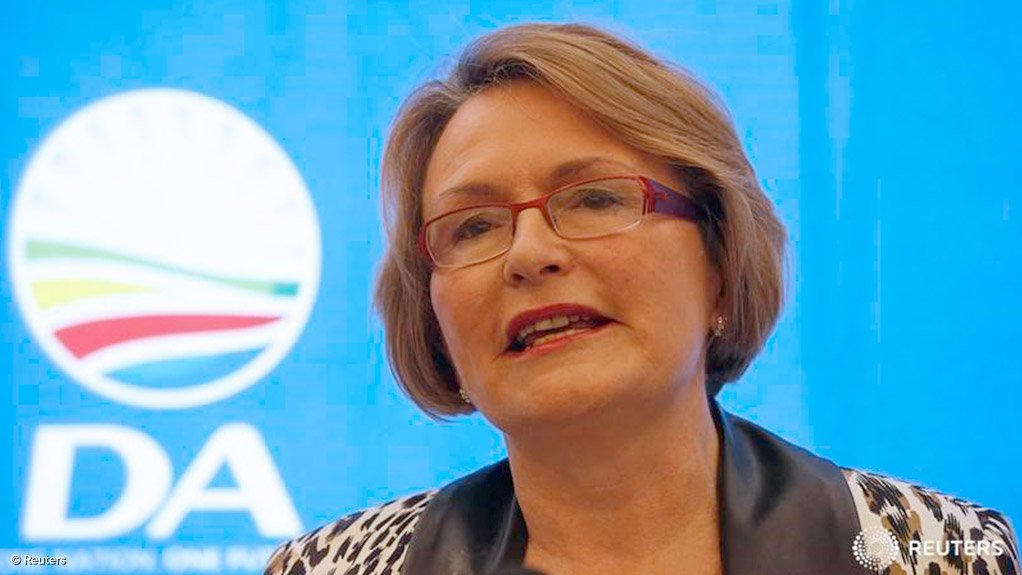Western Cape Premier Helen Zille has asked Water and Sanitation Minister Nomvula Mokonyane for an urgent resolution to the water crisis and for a joint task team to work under the minister's leadership.
Zille called on Mokonyane to establish a task team representing national, provincial and local government working together under the minister, Zille, and Cape Town Deputy Mayor Ian Neilson.
"At the outset, I wish to confirm my agreement with you that all three spheres of government should refrain from politicising, or further politicising, the crisis. No purpose is served by pointing fingers and attributing blame, politically or otherwise," Zille said.
The follows Mokonyane's visit to Cape Town during which it was revealed that bulk water supply funding would not be forthcoming from the national government, which has the mandate for bulk water supply. The local government is responsible for reticulation, while oversight, support, monitoring and disaster management responsibilities are at a provincial level.
Zille's request to Mokonyane outlined seven "fundamental principles" that should underpin short- and long-term plans to supplement Cape Town’s water supply.
These include the provision of bulk water infrastructure and supply from the national government, and that the Department of Water and Sanitation should do this during severe drought and emergency situations.
Further, Zille said that, if the department declined to accept responsibility for the augmentation of bulk water, it would constitute an unlawful abdication of responsibility.
'We need to adapt'
She said the department should contribute financially and added that it was the department's responsibility to provide bulk water infrastructure. The department had an obligation to do so in times of severe drought and emergency situations, she said.
Department of Water and Sanitation spokesperson Sputnik Ratau said the department could continue spending money, including on bulk water infrastructure development as well as operation and maintenance.
Ratau said disaster management was administered by the Department of Cooperative Governance and Traditional Affairs and that funds would be allocated from the department's disaster budget.
Speaking at the Cape Town Press Club on Sunday, Mokonyane said Day Zero - the day the taps are turned off - could be avoided if everyone worked together to save water.
"We need to ensure that all water users in Cape Town have more information on how to save water, especially at household level, given that 70% of water is being used domestically," she said.
"We need to ensure that everyone understands their role in saving water and that we don't place individual interests ahead of the rest of society."
Mokonyane said "the fears of South Africans" must be allayed and that can be achieved through cooperation.
"Day Zero can be avoided if all of us become positive and move beyond politics and appreciate that the realities of climate change are upon us.
"It's not in throwing in money that the solutions will be found. We need to adapt; we need to prioritise, but most importantly, we need to adapt."
EMAIL THIS ARTICLE SAVE THIS ARTICLE
To subscribe email subscriptions@creamermedia.co.za or click here
To advertise email advertising@creamermedia.co.za or click here











